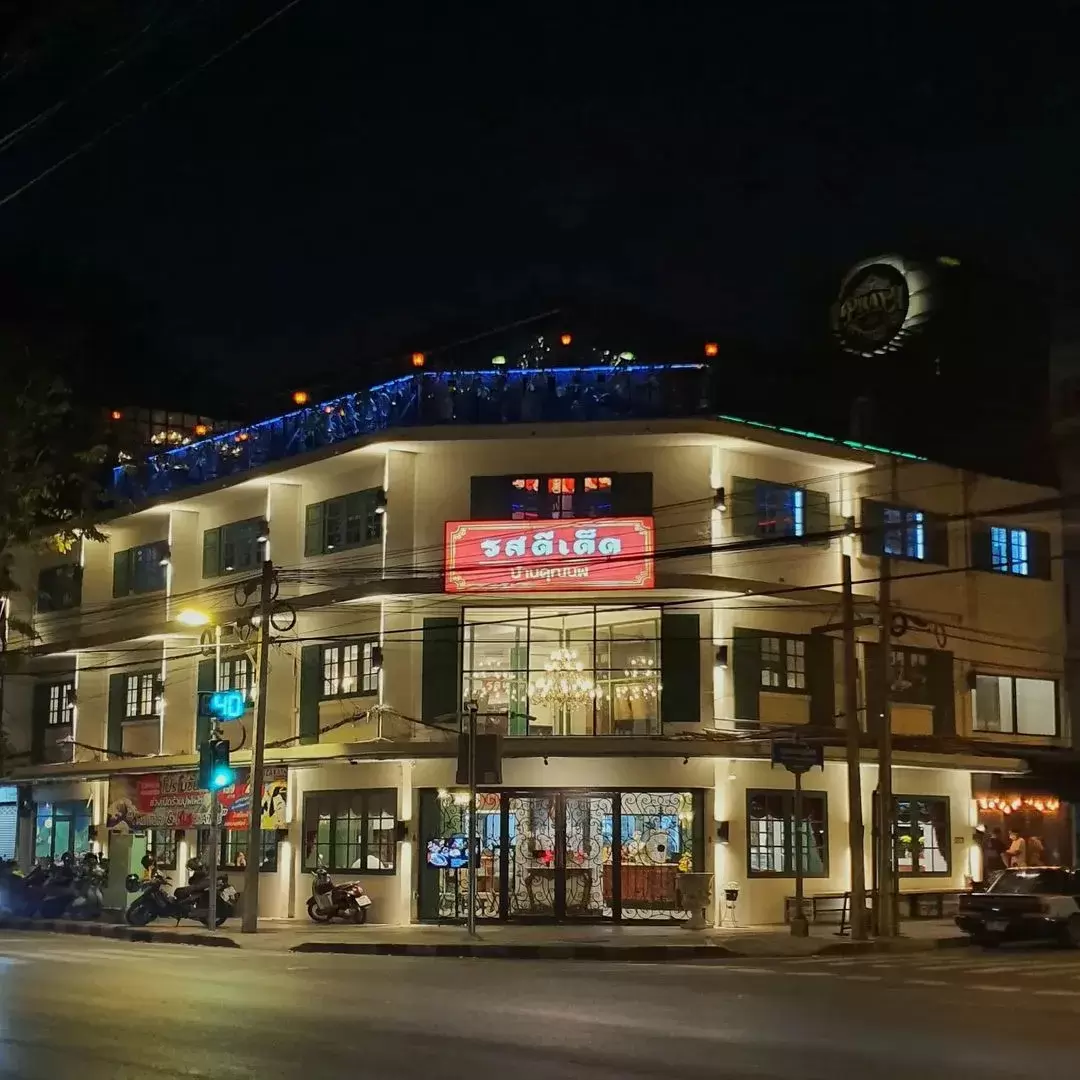Former Thai Prime Minister, Thaksin Shinawatra, announced on Saturday that he will be delaying his much-anticipated return to the kingdom. The 74-year-old billionaire, who won two elections in the past but was ousted in a 2006 military coup, has been living in self-exile for the past 15 years, expressing his desire to return home despite facing what he believes are politically motivated criminal charges.
In a tweet on his recently rebranded account, "X," Thaksin cited a medical appointment as the reason for postponing his return. He mentioned that the delay will not exceed two weeks, leaving many speculating about the potential implications of his return to Thailand's already tense political landscape.
Thaksin's daughter, Paetongtarn Shinawatra, who was a prime-ministerial candidate for the Pheu Thai party, had previously announced that her father was scheduled to arrive in Thailand on August 10.
However, his return has the potential to ignite further tensions in the country, which is currently grappling with a political deadlock. The military-dominated Senate recently thwarted the Move Forward Party's leader from becoming prime minister, even though the party secured the most parliamentary seats in the May election.
The Pheu Thai party, backed by Thaksin, has been striving to form a government, with property tycoon Srettha Thavisin being nominated as its potential prime minister. Nevertheless, the House speaker has postponed the prime ministerial vote until after a constitutional court ruling scheduled for August 16.
Napisa Waitoolkiat, a political analyst from Naresuan University, highlighted recent speculation about a possible deal between Thaksin and the elite to form a coalition that includes pro-military parties. The delay in his return might indicate that such a deal has not been finalized.
Since 2001, parties linked to Thaksin have dominated Thai politics, but their leadership has been marred by military coups and court rulings, resulting in the removal of two prime ministers. Thaksin himself has been residing in self-exile, primarily in Dubai, since 2008. He occasionally communicates with his supporters on the Clubhouse social media platform using the alias "Tony Woodsome."
During his time abroad, Thaksin faced convictions in four criminal cases, but one of them has surpassed the statute of limitations. He still awaits sentencing for the remaining three cases, amounting to a total of 10 years in prison, and is also under investigation in another ongoing case.
In May, Thaksin expressed his willingness to face justice, asserting that the charges against him were politically motivated. Despite the uncertainties surrounding his return, Thaksin's presence in Thailand would undoubtedly have far-reaching implications for the country's political landscape.
In a tweet on his recently rebranded account, "X," Thaksin cited a medical appointment as the reason for postponing his return. He mentioned that the delay will not exceed two weeks, leaving many speculating about the potential implications of his return to Thailand's already tense political landscape.
Thaksin's daughter, Paetongtarn Shinawatra, who was a prime-ministerial candidate for the Pheu Thai party, had previously announced that her father was scheduled to arrive in Thailand on August 10.
However, his return has the potential to ignite further tensions in the country, which is currently grappling with a political deadlock. The military-dominated Senate recently thwarted the Move Forward Party's leader from becoming prime minister, even though the party secured the most parliamentary seats in the May election.
The Pheu Thai party, backed by Thaksin, has been striving to form a government, with property tycoon Srettha Thavisin being nominated as its potential prime minister. Nevertheless, the House speaker has postponed the prime ministerial vote until after a constitutional court ruling scheduled for August 16.
Napisa Waitoolkiat, a political analyst from Naresuan University, highlighted recent speculation about a possible deal between Thaksin and the elite to form a coalition that includes pro-military parties. The delay in his return might indicate that such a deal has not been finalized.
Since 2001, parties linked to Thaksin have dominated Thai politics, but their leadership has been marred by military coups and court rulings, resulting in the removal of two prime ministers. Thaksin himself has been residing in self-exile, primarily in Dubai, since 2008. He occasionally communicates with his supporters on the Clubhouse social media platform using the alias "Tony Woodsome."
During his time abroad, Thaksin faced convictions in four criminal cases, but one of them has surpassed the statute of limitations. He still awaits sentencing for the remaining three cases, amounting to a total of 10 years in prison, and is also under investigation in another ongoing case.
In May, Thaksin expressed his willingness to face justice, asserting that the charges against him were politically motivated. Despite the uncertainties surrounding his return, Thaksin's presence in Thailand would undoubtedly have far-reaching implications for the country's political landscape.
Former Thai Prime Minister, Thaksin Shinawatra, announced on Saturday that he will be delaying his much-anticipated return to the kingdom. The 74-year-old billionaire, who won two elections in the past but was ousted in a 2006 military coup, has been living in self-exile for the past 15 years, expressing his desire to return home despite facing what he believes are politically motivated criminal charges.
In a tweet on his recently rebranded account, "X," Thaksin cited a medical appointment as the reason for postponing his return. He mentioned that the delay will not exceed two weeks, leaving many speculating about the potential implications of his return to Thailand's already tense political landscape.
Thaksin's daughter, Paetongtarn Shinawatra, who was a prime-ministerial candidate for the Pheu Thai party, had previously announced that her father was scheduled to arrive in Thailand on August 10.
However, his return has the potential to ignite further tensions in the country, which is currently grappling with a political deadlock. The military-dominated Senate recently thwarted the Move Forward Party's leader from becoming prime minister, even though the party secured the most parliamentary seats in the May election.
The Pheu Thai party, backed by Thaksin, has been striving to form a government, with property tycoon Srettha Thavisin being nominated as its potential prime minister. Nevertheless, the House speaker has postponed the prime ministerial vote until after a constitutional court ruling scheduled for August 16.
Napisa Waitoolkiat, a political analyst from Naresuan University, highlighted recent speculation about a possible deal between Thaksin and the elite to form a coalition that includes pro-military parties. The delay in his return might indicate that such a deal has not been finalized.
Since 2001, parties linked to Thaksin have dominated Thai politics, but their leadership has been marred by military coups and court rulings, resulting in the removal of two prime ministers. Thaksin himself has been residing in self-exile, primarily in Dubai, since 2008. He occasionally communicates with his supporters on the Clubhouse social media platform using the alias "Tony Woodsome."
During his time abroad, Thaksin faced convictions in four criminal cases, but one of them has surpassed the statute of limitations. He still awaits sentencing for the remaining three cases, amounting to a total of 10 years in prison, and is also under investigation in another ongoing case.
In May, Thaksin expressed his willingness to face justice, asserting that the charges against him were politically motivated. Despite the uncertainties surrounding his return, Thaksin's presence in Thailand would undoubtedly have far-reaching implications for the country's political landscape.
In a tweet on his recently rebranded account, "X," Thaksin cited a medical appointment as the reason for postponing his return. He mentioned that the delay will not exceed two weeks, leaving many speculating about the potential implications of his return to Thailand's already tense political landscape.
Thaksin's daughter, Paetongtarn Shinawatra, who was a prime-ministerial candidate for the Pheu Thai party, had previously announced that her father was scheduled to arrive in Thailand on August 10.
However, his return has the potential to ignite further tensions in the country, which is currently grappling with a political deadlock. The military-dominated Senate recently thwarted the Move Forward Party's leader from becoming prime minister, even though the party secured the most parliamentary seats in the May election.
The Pheu Thai party, backed by Thaksin, has been striving to form a government, with property tycoon Srettha Thavisin being nominated as its potential prime minister. Nevertheless, the House speaker has postponed the prime ministerial vote until after a constitutional court ruling scheduled for August 16.
Napisa Waitoolkiat, a political analyst from Naresuan University, highlighted recent speculation about a possible deal between Thaksin and the elite to form a coalition that includes pro-military parties. The delay in his return might indicate that such a deal has not been finalized.
Since 2001, parties linked to Thaksin have dominated Thai politics, but their leadership has been marred by military coups and court rulings, resulting in the removal of two prime ministers. Thaksin himself has been residing in self-exile, primarily in Dubai, since 2008. He occasionally communicates with his supporters on the Clubhouse social media platform using the alias "Tony Woodsome."
During his time abroad, Thaksin faced convictions in four criminal cases, but one of them has surpassed the statute of limitations. He still awaits sentencing for the remaining three cases, amounting to a total of 10 years in prison, and is also under investigation in another ongoing case.
In May, Thaksin expressed his willingness to face justice, asserting that the charges against him were politically motivated. Despite the uncertainties surrounding his return, Thaksin's presence in Thailand would undoubtedly have far-reaching implications for the country's political landscape.





